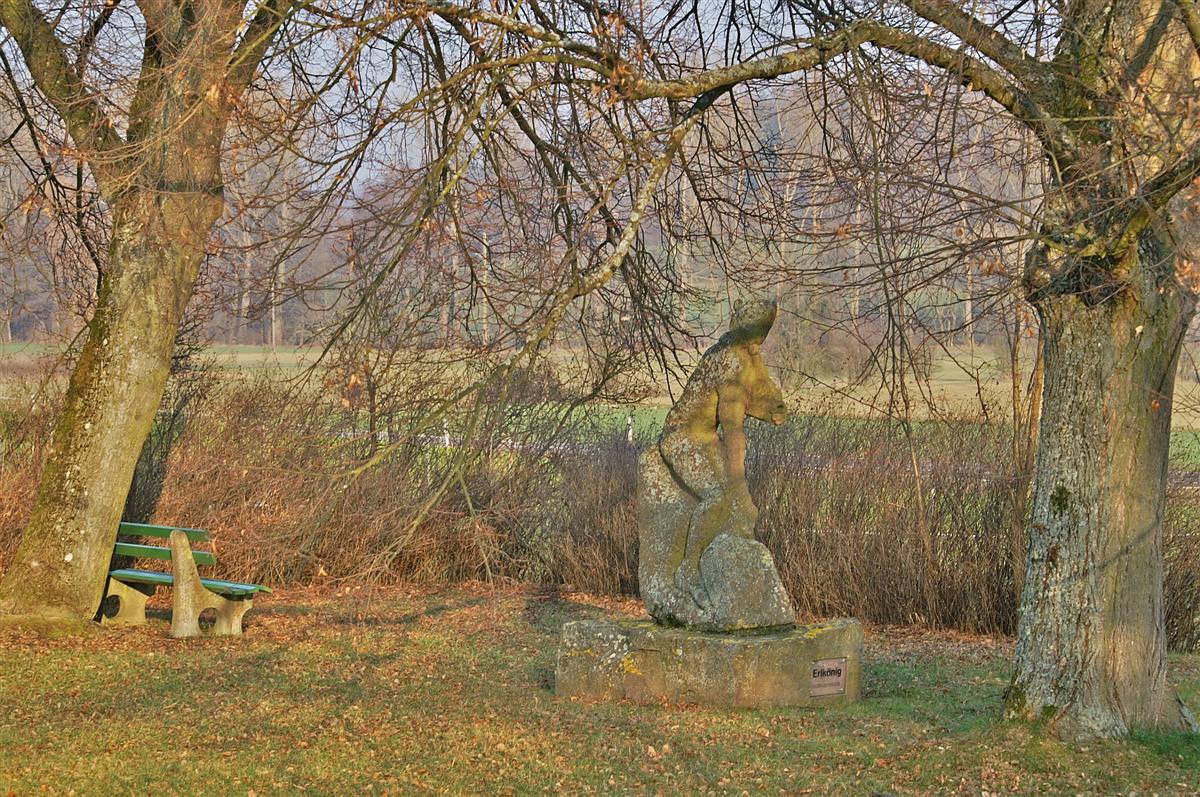Hello hello, pornies. How have you been these days? Hopefully, better than me. My health is still causing trouble and preventing me from keeping up with everything. However, as I said in my Instagram a few days ago, I was thinking about a new entry about the Alder King, and this time I was wondering about where he would fit, if in the Seelie Court or the Unseelie Court.
 |
| Statue depicting the Erlking in the ancient graveyard of Dietenhausen, in Keltern, Germany. Source. |
As always, if you are new to all this Alder King thing, here are the previous entries I've written about him:
- 1. Midnight Thoughts: A Queer Faery King?
- 2. Faeryday: Possible attributes of the Alder King?
- 3. Faerydays: An Esbat with the Alder King
- 4. Faeryday: Is the Alder King a child rapist/killer? + Bonus Videos
- 5. Faerydays: Why the Alder King?
Now, before anyone screams WTF at me, hear me out. I know the Seelñie and Unseelie Courts are a Scottish classification. Given the fact that the Alder King I write about is based on Goethe's poem, this would make him German, so he actually wouldn't belong to any of them. I would need to search for a German classification, and I'm sure there has to be one (if anyone knows, tell me as soon as possible!)
However, these two courts are very well known in pop culture, and could be the first kind of classification one may think about regarding the Fae. So I was asking myself if the Alder King would fit in any of their descriptions. To keep it simple, and to stay with current definitions, Morgan Daimler defines them as such in their A New Dictionary of Fairies: A 21st Century Exploration of Celtic and Related Western European Fairies, which I also reviewed here in the blog:
Seelie: One of the two main Courts of Fairy found in Lowland Scottish folklore, the Seelie court was likely originally a euphemism for all fairies and only later came to be seen as a distinct grouping of kindly inclined fairies. (...) The term seelie here is related directly and strongly to their temperament with Jamieson calling it the "pleasant or happy court, or the court of the pleasant and happy people" (...) The Seelie Court is usually considered to be more en evolenty inclined towards humans and won't cause harm without a reason and warning.
Unseelie: In essence the word represents the opposite of its counterpart seelie, just as the fairies it describes are the opposite of the Seelie fairies. Generally it can be defined as a person who is unhappy, unfortunate, or unlucky and in the fairies the implication isn't that they are these things but that they bring these things with them. (...) Just as the Seelie Court are those most inclined to help humans without a reason the Unseelie Court are those who are most inclined to harm without a reason.
At first glance, it looks like he would fit into the description of the Unseelie court. For feck's sake, he killed a child in his father's arms! We're not debating that. However, as I've said in the past, the Fae have a different moral compass and, thus, cannot be judged according to ours. However, the dialogues of the Alder King match the Seelie description.
He tempts the boy with dances, songs, games, flowers, and so on. Instead of simply snatching him from his dad's arms, His Majesty tries to make the boy go with Him willingly speaking of tempting wonders that should have worked wonderfully in any child.
What do we do with this? What does this mean? That the Alder King can indeed be an entity we could work with and that shouldn't be feared, at least not if we're willing to negotiate. This doesn't mean He is not dangerous, though, for all the fae should be treated with respect, even more if they are part of the royalty.
When feeling the Alder King's energy, I didn't feel threatened or in danger, quite the opposite, but I did feel He shouldn't be underestimated or His generosity taken for granted. I got the impression He likes people to earn their blessings and be honorable in the uses they give them, that He is willing to help you as long as you help Him do so.








No comments:
Post a Comment